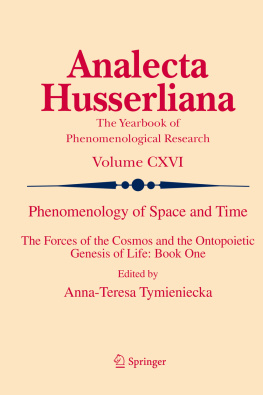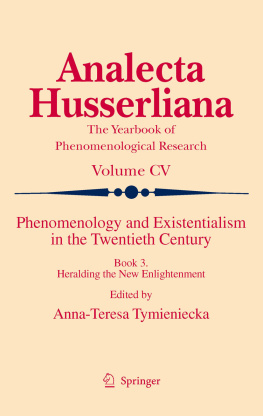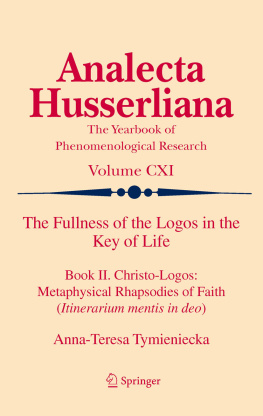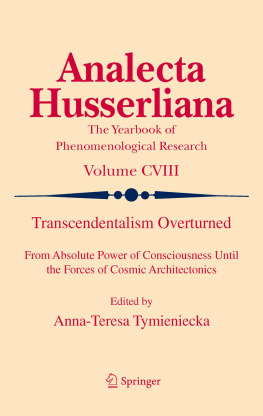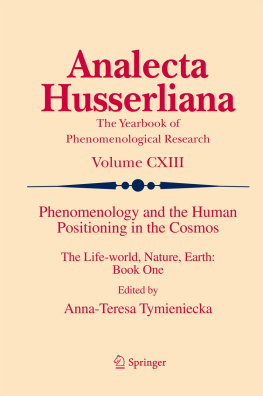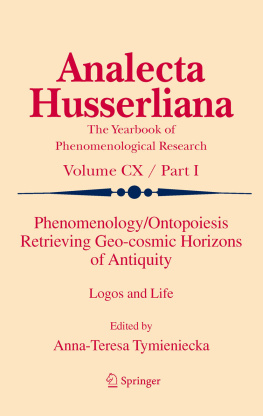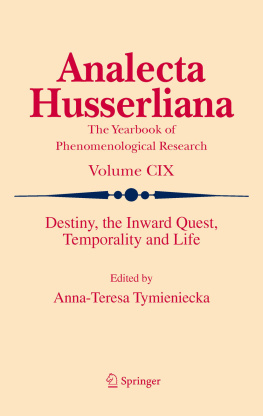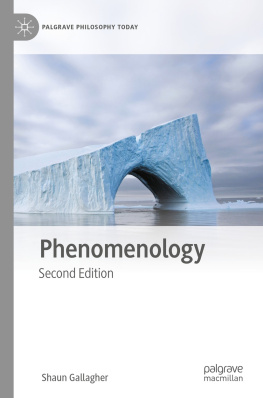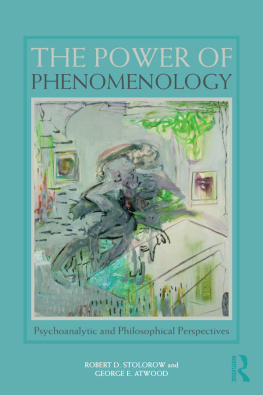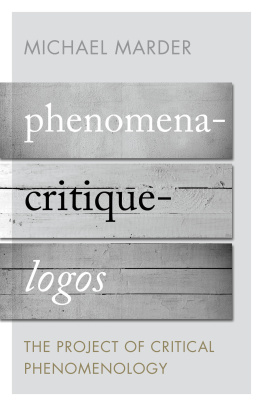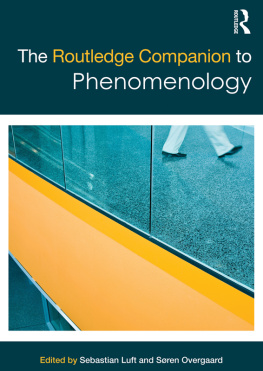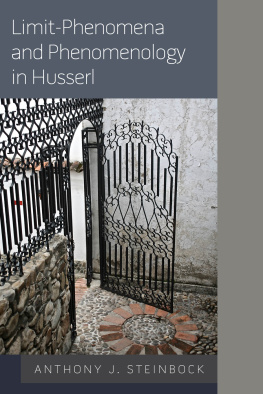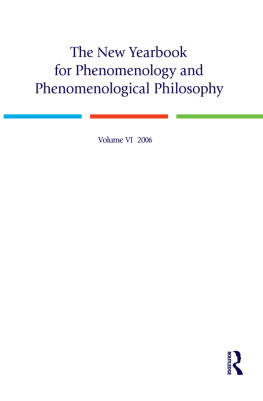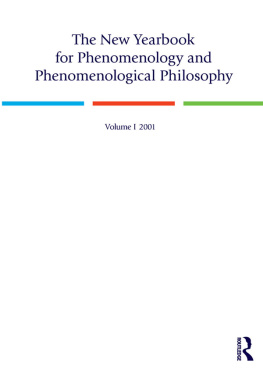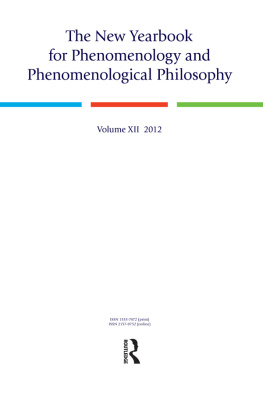Abstract
In Anna-Teresa Tymienieckas various studies, one finds a specific focus to her work: she brings to light a new concept of the transcendental, understood no longer as an abstract concept of traditional phenomenology, but as a characteristic of living in which the human being actively participates through its intellectual spirit that we call the Transcendental of humanity. In our opinion, based on the creative activity of this spirit, it becomes possible to restore to philosophy a new vitality; it need no longer be seen as abstract or ideological, but as human, social. Philosophy becomes the human ground for a metaphysics of life, for a way of thinking that deals with the great and ultimate questions, to borrow from Husserls turn of phrase (Edmund Husserl, Cartesianische Meditationen und Pariser Vortrge in Husserliana I, ed. B. Strasser [Den Haag: Martinus Nijhoff, 1950], p. 299). One can examine these questions in a straightforward human fashion, from the vantage point of the human being in her concrete and particular reality, who lives in the world. In its critical capacity, the intellectual spirit becomes the precondition for the constitution of a metaphysics that no longer has the abstract character of a science of being, understood as the intangible; rather, it configures itself as a personal, concrete human understanding of the universe with a particular focus on meaning for everyday life.
Nicoletta Ghigi (tr. Antonio Calcagno)
The Human Being and Its Livingness
Life and the Human
If philosophy has some vested interest in saying something that may be useful for humanity, for its very living, for its existential problems, it has a duty to seek to comprehend that humanity is living, rather than reflecting on itself or its variegated subfields that signify in empty formal structures. spoke about. It must cease to operate in a logically calculating or critical fashiona philosophy that works on valid, formal concepts that are, in the end, useless for living.
Philosophy must return to its fundamental task: to illumine conscience as to its own values, literally in the sense demanded by Enlightenment thought, which reflects the very thought of Anna-Teresa Tymieniecka. In other words, philosophy has the task of re-appropriating the role, drawing from psychology and the other sciences (i.e., anthropology, psychoanalysis, etc.) of being the indicator of the sense or meaning of living or, as Aristotle said, to teach one to reach that which is generally called wisdom.
Even the question of being, viewed from the perspective of the ontological difference, with which Heidegger thought he had definitively resolved the ontological problem, thereby defeating classical, abstract and dogmatic metaphysics, must remain primary and must serve as the principal existential argument of metaphysics. Here, we have to ask: What kind of metaphysics? Certainly not the kind that Heidegger wanted to overthrow for it is completely empty and useless when it comes to the question of the ground and of existence.
The problem of a new ground for metaphysics has been much discussed and does not simply concern the forgetting of being, which, in its unpredictable happening, configures itself again as an abstraction. The problem, rather, concerns the forgetting of the telos and sense of being there. In our opinion, humanity did not forget being, as Heidegger says, but what is forgotten is its true significance, the sense of every single living being in the world that surrounds being. The problem of being, therefore, remains a metaphysical problem, but not as one stemming form an ancient or dogmatic metaphysics that turns emptily upon concepts, nor as a metaphysics that has no bearing on practical life. Here, rather, we are speaking about a new metaphysics that directly talks to and about life . If we wish to avoid falling into that inauthentic metaphysics that Heidegger denounced, we must turn to speak about neither being nor its sense, understood in an abstract sense, but of the concreteness of life.
In this regard, Anna-Teresa Tymieniecka gives us the possibility that in the human being there exists a creative power, an ontopoetic logos that is at the basis for our comprehension of the universe. Here, we must begin in order to be able to conceive a possible renewal of philosophy as well as a new Enlightenment of human reason in relation to its being in the world.
Anguish and Dehumanisation
The problem of dehumanisation, understood as the forgetting of the person and not being, is, in our age, the general character of our existence. One lives, we live carrying out the most varied activities while abandoning the interior dialogue and the significance of the non-repeatable individuality that is our own. One does not follow ones own telos, that which the singular and absolutely unique personality displays from within each of us; rather, we follow that which attracts us from the outside, which does not call into question our true and deep individuality. In our view, this is the process of dehumanisation that lies at the base of anguish or dis-ease, both of which characterise our generation.
The question of anguish is hardly a problem abstracted from or foreign to everyday life, which must only be considered by psychologists or philosophers as something that signals the limit of non-normality. On the contrary, here we are dealing with a wholly real problem that involves humanity at its very constitutive level . It actually emerges with great force in its characterisation as a malady that must be cured or resolved, as something that impedes the person from effectively living in the actual present, according to externally imposed rhythms. And, so, daily anguish, imposed more by external time than by internal solicitations, becomes a pathology.
It should be remarked that, in the past, anguish also characterised humans, but it was lived in a natural fashion, as a normal fact of life, as something that signalled the growth of a person. The person would follow her own inclinations (from within); one encountered others and the situations of life. Today, this natural process does not seem to proceed in the same, spontaneous manner; rather, anguish is largely characterised as a malady that needs to be cured in the quickest way possible.
What has changed from not so long ago? First, as humans have resolved key problems concerning bare survival, and certainly this is the case in wealthier countries (where, in fact, anguish is recognised as a pathology), anguish has been displaced from the natural level to an unnatural one. We no longer have to worry about the necessities of life insofar as these are already given. Now, we face the problem of superabundance. In fact, that which is no longer a necessity for life has become one, much like a neurosis, namely, to be in synch with others. Anguish refers to that which is lacking but which is not effectively necessary. Momentarily, turning away from the psychological and social implications, it is interesting to see how this lack of the non-necessary leads us to a non-natural anguish and pathology by which a human being loses meaning. Anguish becomes the substrate of the human being because each thing is lived as frustrating, given that the natural plane of attribution of meaning has been displaced onto things. Since one gives value to that which is not necessary (insofar as that is already given is in need of no other searching), the attribution of value is conferred on to that which is not necessary. And this is wholly unnatural, contrary to human nature. The relation to things and with others is consequently lived in a negative way (unnaturally) with much anguish because one expects from life a gift that is nothing natural, but artificial. Artificiality, then, becomes the focus of an anguish-ridden living. One seeks pleasure, objects, realities, situations that are not necessary for positive living (read natural) and one forgets singular, unique human destiny, one forgets ones own belonging to being animated by a naturalness that seeks integrated parts from nature.

